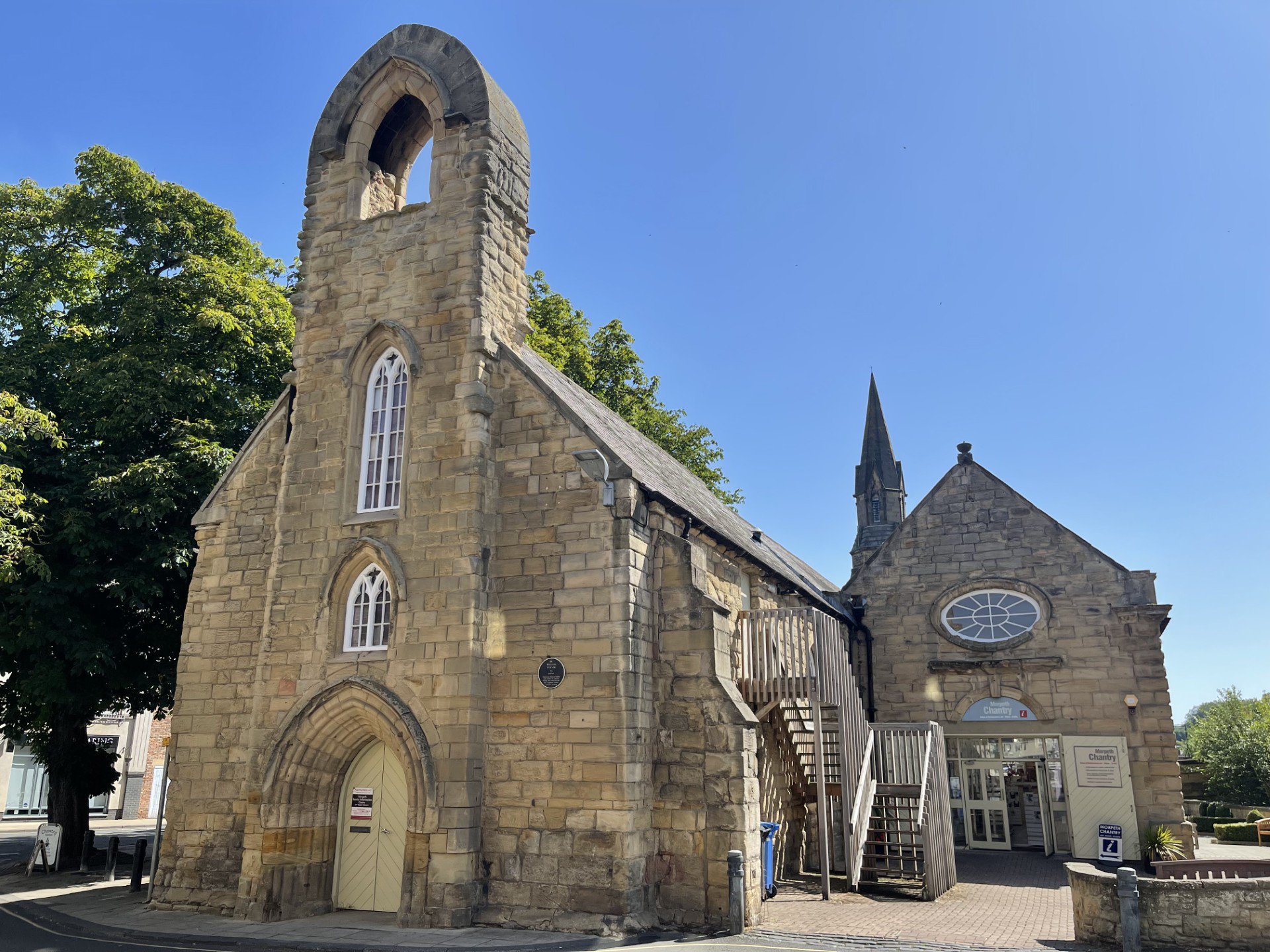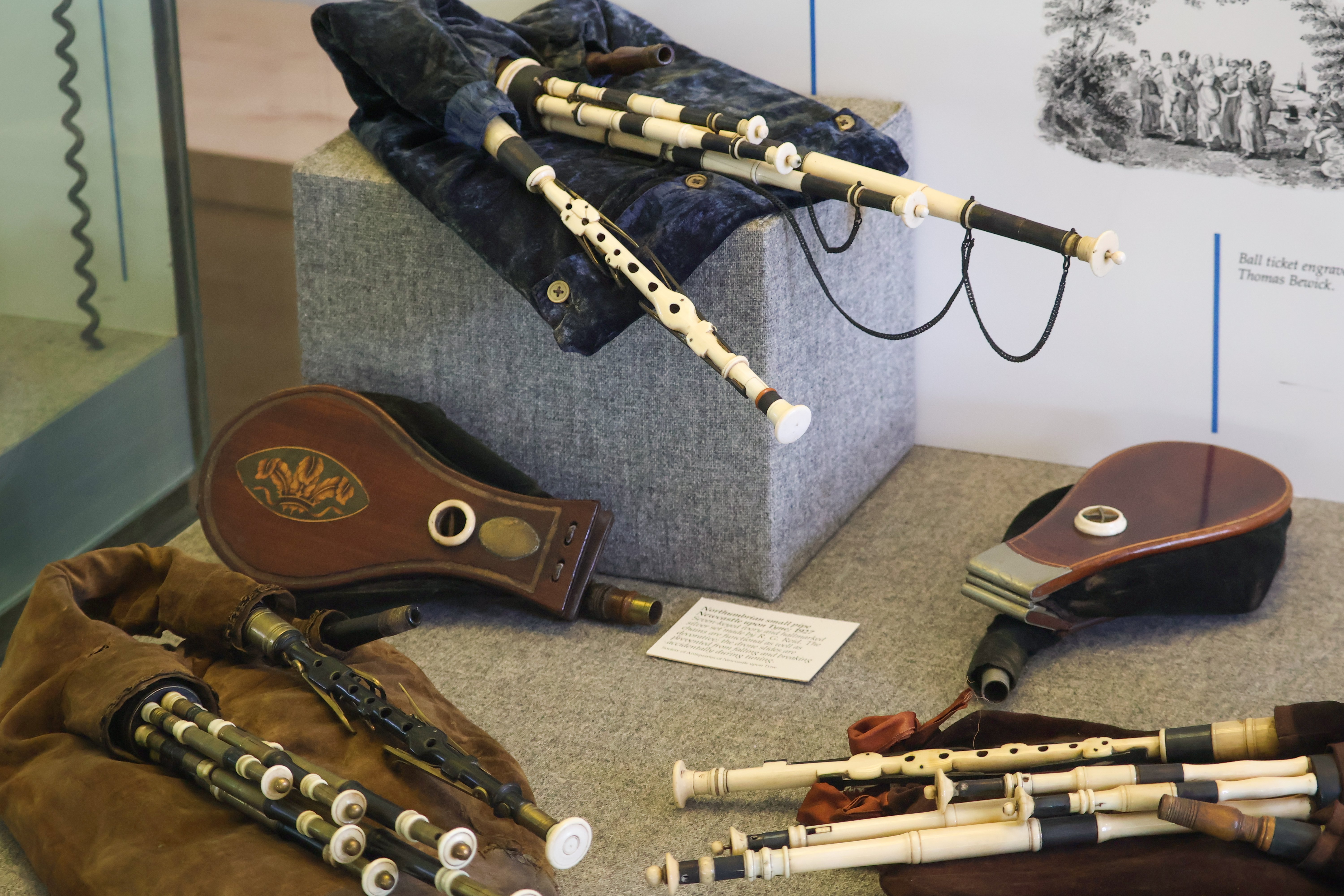About Morpeth Chantry Bagpipe Museum
The very first bagpipe museum in the UK, a major part of Northumberland's musical landscape.
Morpeth Chantry

The Morpeth Chantry Bagpipe Museum is on the first floor of the Chantry, a 13th century Grade 1 listed building. The Chantry also houses Morpeth's Tourist Information Centre.
Morpeth Chantry was founded in 1296 by Richard of Morpeth as a place of prayers to be said in memory of his parents and his benefactor, Lord of Morpeth, John of Greystoke.
The building is one of five surviving examples of a bridge chantry, where blessings would be given to the passing traveller in exchange for a small fee.
From the 1550s through to 1846, the Chantry was used as Morpeth's original grammar school, and it was here that Dr William Turner, the naturalist often described as 'the father of English botany' began his education. The Chantry Peace Garden which visitors can explore, was inspired by his work.
The Chantry was also used as council offices, a Victorian concert venue and a mineral water factory in the 20th century.
Today, you can still visit the oldest window in Morpeth and see the foundations of the old Medieval bridge in the River Wansbeck.
Morpeth Chantry Bagpipe Museum

Northumberland is the only county in England with its own dedicated instrument, the Northumberland Pipes. Morpeth Chantry Bagpipe Museum is the first museum to celebrate this unique heritage.
There are over 120 sets of pipes in the collection (displays are changed regularly) from across Europe, including decorative sets from Scotland, Spain, Italy, France, Estonia and beyond.
The museum is home to William Alfred Cocks - the master clock maker and pipe enthusiast's extensive collection, a set of bagpipes which belonged to King Louis XIV, a miniature set made for Queen Mary's dolls' house and pipes from the Jacobite rising.
Visitors can also enjoy regular live musical performances, 'Learn to Play in a Day' and 'Meet the Piper' sessions.


